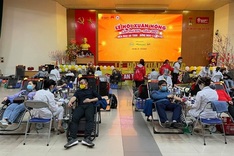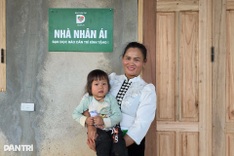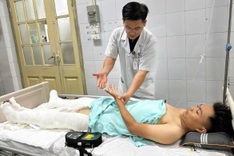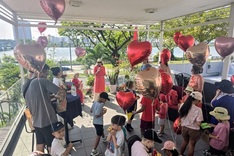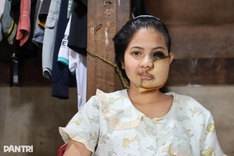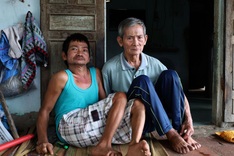At an International Habitat for Humanity build in Southeast Asia, a Rapid City Vietnam veteran took part in rebuilding a small corner of what he left as a war-torn nation.
The last time David Moore was in Vietnam, he was leaving a full-scale war. He returned to America and began his civilian life with only occasional thoughts about the small country.

David Moore of Rapid city was one of 10 South Dakotans who traveled to Southeast Asia as part of the International Habitat for Humanity Jimmy and Rosalynn Carter work Project in the Mekong region. (Photo courtesy of David Moore)
More than 40 years later - after his July retirement - Moore connected with Black Hills Area Habitat for Humanity. While reading one of the first newsletters he received, an opportunity for volunteers to take part in an international build in Vietnam leapt off the page.
"I was one of their first volunteers," Moore said.
Moore recently returned from Ke Sat, a fishing village about 30 miles from Hanoi. He said he didn't go to the country with any expectations.
"I didn't set myself up for disappointments," he said.
On the trip, he was able to take part in a culture that he could observe only from afar on his military tour of duty, where soldiers found it was dangerous to accept food or drink from strangers or gather with friends beyond the military post.
Moore was part of a 10-member volunteer team from South Dakota involved in helping construct 300 new homes. Nate and Marie Taylor and Nyla and Tom Griffith, all from Deadwood, along with Evan Ingebrigtson, Pat McGee, Tom Chap, JoJean Callison and Chuck Cunningham, all of Sioux Falls, participated with Moore in the Jimmy and Rosalynn Carter Work Project in the Mekong region.
The South Dakota crew helped to build a 12-by-24-foot home from concrete blocks for a family of four.
The family's home had been a cramped fishing boat on the banks of the Tahi Binh River. "The family we built for lived on a 16-foot san pan with mats used as walls and tarp used on top. Their livelihood was fishing," he said.
The couple fishes from the same boat they lived on, while their two children remained in the village with their grandparents so they could attend school. Life on the river can be dangerous for children unable to swim, and there is no access to medical care while living on the river. The new home is giving the family access to sanitation and electricity for the first time, Moore said.
Thirteen countries were represented on the build, which explains Moore's excursion into the city with about seven New Zealanders to take in the local cuisine.
A multi-course meal was served to the group on the street. The meal lasted about 30 minutes, but the memory of gnawing on chicken feet will last for years.
"I found out from watching a Vietnamese man that you break off the toes and eat them entirely - including the toenails," Moore said with a laugh.
In his 20s, Moore had been careful about his camera, watch and billfold-all fodder for pickpockets. Things were different this time, he said.
"That was a significant difference. I never saw a beggar or panhandler. The general atmosphere was incredibly different," he said.
Moore had the opportunity to meet with the Carters in Hanoi and at the job site. At the end of the trip, he felt a sense of accomplishment.
"I felt I wanted to see it under different conditions than when I left. I wanted to contribute something to its reconstruction," he said.
---
Some of the villages in the Mekong region were settled by fishing families who made their living on the nearby river. As fish stocks have dwindled, they have taken up rice farming. Both occupations are seasonal, and the low family incomes are supplemented by day labor and home-based businesses.
Houses offer village families a stable base for children to attend school. Through their partnership with Habitat and in accumulating 100 hours of sweat equity, home partners have learned new skills, including how to make sewer covers and concrete blocks.


